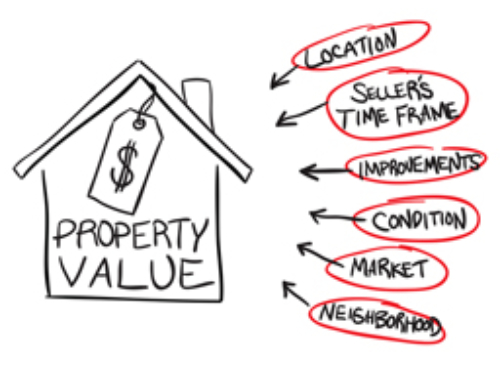 Q: I am currently renovating a property in order to rent it. I am interested in opening a bank account to keep those funds separate. One bank has told me that I need a business license. Can you help me find information about opening a bank account? Using a business name vs. personal?
Q: I am currently renovating a property in order to rent it. I am interested in opening a bank account to keep those funds separate. One bank has told me that I need a business license. Can you help me find information about opening a bank account? Using a business name vs. personal?
Andy Heller has been investing in real estate for the past twenty years and currently holds more than twenty properties in his portfolio. In addition, he and his investing partner, Scott Frank, have written a number of books (Buy Low, Rent Smart, Sell High; Buy Even Lower; 6 ½ Ways to Conserve Cash When Buying Homes ) on investing in real estate and are cofounders of RealtyJoin.com, a free social-networking and marketplace website that is open to buyers, sellers, investors, and the companies that provide the services they need to close on their real estate deals.
I asked Andy to answer your real estate investing question so you could get the benefit of his years of expertise. Here’s what he had to say:
“I do not believe all banks will require you to have a business license in advance of setting up an account. But you might need an EIN, which is an Employer Identification Number, provided by the IRS if you truly want the business to be separate.
“Here are two important steps you should take when starting your real estate investing business:
“Step #1: Speak with your accountant and discuss your real estate investment goals. You want to create an investment property plan and decide whether you’re going to have just this one investment or if you plan to purchase additional properties. If you plan to do more investing, your accountant will help you figure out what type of legal entity to establish for your real estate investments. Many investors use LLCs, and you can apply for this online in your county; the process takes minutes.
“Step #2: After you figure out what type of legal entity to open, get the paperwork done for that, and get an EIN from the IRS, then you should meet with the banks you are considering using. Ask if they have an “entrepreneur” or “premium banker” program. Most banks have a department or person that deals specifically with investors and small businesses, and it is much easier to get concise answers and guidance when dealing with the right person. Simply tell the banker which entity you selected (and if there is a delay in your state before you can use this entity), and the banker should be able to provide the proper counsel on which types of accounts you’ll need to open up. You may find the bank willing to start an account in an individual’s name and then later convert it to a business account.
“I believe your main issue is actually accurate record keeping. That’s a very important point, and it can get complicated if you wind up buying several properties. We use QuickBooks to run this business.
“Years ago, my partner, Scott, and I purchased, rehabbed, and rented a property using ‘personal funds.’ Once we realized we wanted to continue to invest, we formed an LLC, and our accountant was able to use all receipts and expenditures from before the LLC was created.
“It was just a bit more paperwork, but since then we’ve kept everything dealing with our real estate investments separate and distinct from our personal or family money.”
Contact Andy Heller at andy.heller@realtyjoin.com.
Ilyce Glink is a best-selling author, real estate columnist, and web series host. She is the managing editor of the Equifax Finance Blog and CEO of Think Glink Media. Follow her on Twitter: @Glink






